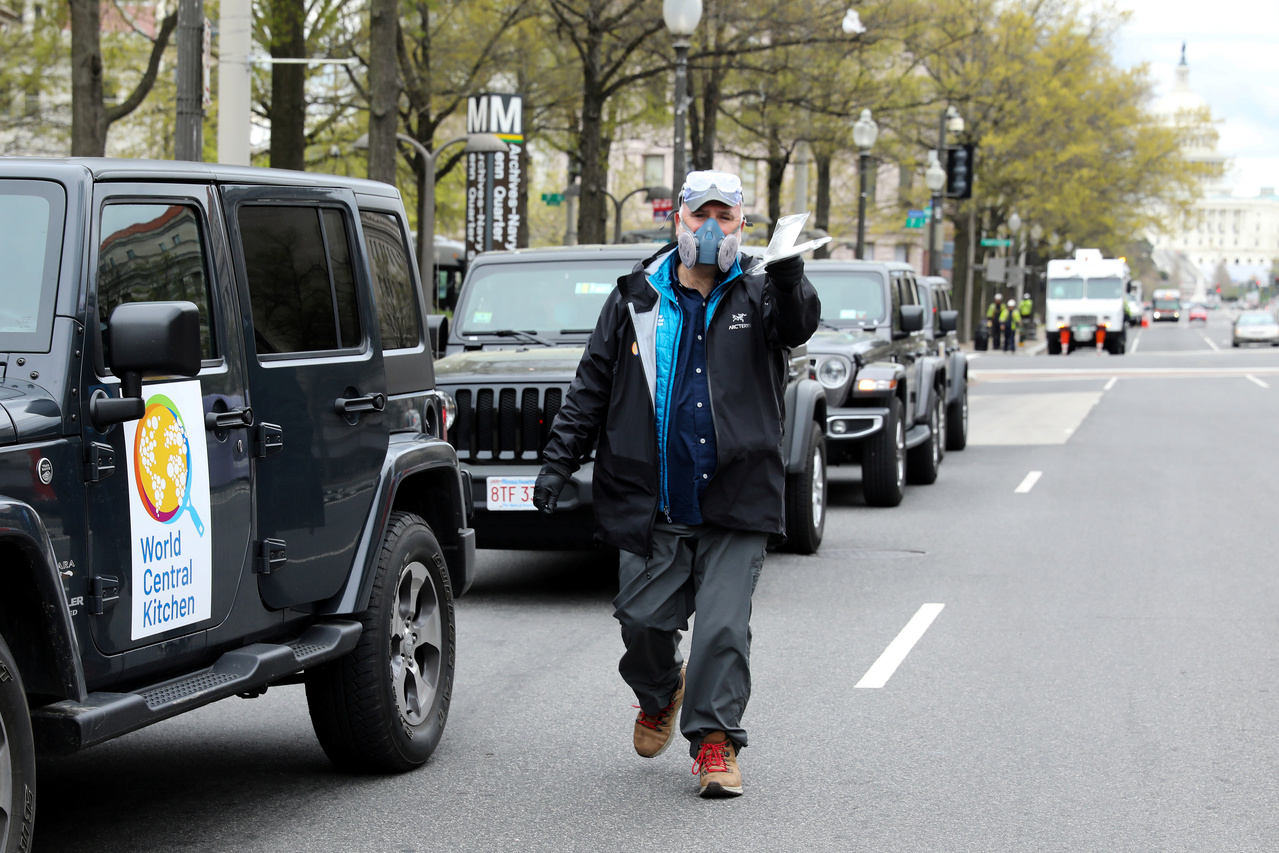News analysis
How Americans are rating Trump's handling of the coronavirus crisis
Sign up now: Get ST's newsletters delivered to your inbox

US President Donald Trump's approval was down from 55 per cent in an earlier iteration of the poll done from March 18 to 19.
PHOTO: REUTERS
Follow topic:
WASHINGTON - As the United States heads towards the grim milestone of 10,000 coronavirus-related deaths, polls this week found that Americans are cooling on President Donald Trump's handling of the public health crisis after an earlier rise in support.
The initial rise in support is unsurprising, given voters' typical tendency to "rally around the flag" during a national emergency, say political scientists.
But Mr Trump's approval slide afterwards was also expected, as the bump had been historically weak to begin with, they added.
An ABC News-Ipsos poll released on Friday (April 3) found that 47 per cent of Americans approve of how Mr Trump is handling the coronavirus response, compared to 52 per cent who disapprove.
The survey of 500 Americans was conducted on Wednesday and Thursday, after federal social-distancing guidelines were extended for 30 days and the President's coronavirus task force gave a sobering projection of between 100,000 and 240,000 American deaths due to the pandemic.
Mr Trump's approval was down from 55 per cent in an earlier iteration of the poll done from March 18 to 19. That rating was a surge from a poll conducted from March 11 to 12, when his approval stood at 43 per cent.
Mr Trump could have been rewarded for his more aggressive actions taken to contain the virus starting from the middle of March, when he gave a sombre Oval Office address and announced the suspension of travel from Europe. That was also the week businesses began shutting down and people started staying at home.
Mr Trump fell in the category of leaders who started out dismissing the severity of the virus but later pivoted to taking more dramatic measures, said Eurasia Group Americas managing director Christopher Garman and Ipsos US public affairs president Clifford Young.
They added that preliminary public opinion data suggested that the public rewarded incumbent leaders who treated the current crisis as a war.
Said Princeton University American history professor Kevin Kruse on Twitter: "Remember that presidential approval generally surges in the early stages of a crisis."
Over the first two months of the Iran hostage crisis in 1979, Democratic President Jimmy Carter's approval jumped from 32 per cent to 58 per cent, Prof Kruse noted. President George W. Bush's approval rating soared to 92 per cent after the Sept 11 attack, up from the 60 per cent he had when he took office.
In contrast, Mr Trump's approval rise as documented by the ABC-Ipsos poll was smaller.
Much depends on how Mr Trump continues to handle the crisis. Polls also showed that his earlier desire to reopen the economy by Easter in mid-April was out of step with what Americans want: stricter measures to curb the virus' spread.
A Reuters-Ipsos coronavirus tracker on March 27 found that 83 per cent of Americans felt local leaders should be doing more to enforce or issue stay-at-home orders, compared to the 17 per cent who did not.
Currently, a dozen states, all of which have Republican governors, do not have shelter-in-place orders. Mr Trump has said he will leave it up to local leaders to decide, rather than giving a nationwide stay-at-home order.
But National Institute of Allergy and Infectious Diseases head Dr Anthony Fauci suggested he thought such an order would be for the best, telling CNN on Friday: "If you look at what's going on in this country, I just don't understand why we're not doing that."
Meanwhile, the US is bracing itself for a painful fortnight ahead. On Friday, New York reported 562 deaths, its highest number in a single day so far.
Governors continue to report shortages in ventilators and other medical equipment, pleading to be given some from the national stockpile. Medical professionals protest against the lack of personal protective equipment, and some are reporting having to wear trash bags for gowns and use bandannas for masks.
Amid this, a record 6.6 million Americans filed for out-of-work benefits last week as economists warn that a recession is imminent. While Congress passed a historic US$2.2 trillion ($3.2 trillion) relief package, the personal cheques and emergency loans will take time to make its way to businesses and individuals.
Political watchers reckon that the surge in Mr Trump's support is unlikely to be sustained, as US deaths continue to rise and the economy reels from the millions abruptly out of work.
"Deep recessions, high unemployment, and overburdened public health systems will take their toll. The early 'wartime' glow of the crisis is likely to fade," said Mr Garman and Mr Young.

